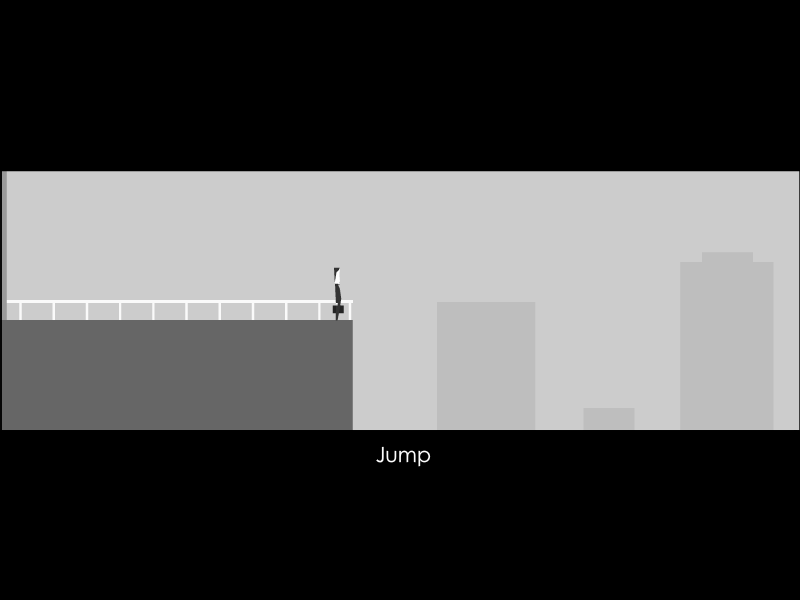Last time we talked about how video game objectives can influence how much a player values something. The
careful designer can set up an objective that forces the player to temporarily
adopt a value-set that is not their own.
Speaking of forcing their values on players, Every Day the Same Dream is an indie
game with a bleak outlook on life. The player is stuck in a vicious cycle of
waking up, getting dressed, and going to work. The only way to “beat” the game
is to go against the system. The player must accomplish five tasks. They are
given no instruction on what they are supposed to do, but must figure it out
for themselves by going against the flow. For example, one of the tasks
involves going to work in their underwear and being fired by the boss. Another
task involves the player throwing themselves off the roof of the building where
they work. The goal of the game is to break out of the everyday routine and
have players think for themselves. The player is forced to “fight the man,”
regardless of their current job satisfaction. And because being a free-thinking
douche is the only way to win the game, the game advances an anti-establishment doctrine.
 |
| Petting cows: the biggest middle finger you can give corporate America. |
What’s more, the way players accomplish this goal is
rhetorical. Players are rewarded for suicide in the sense that it helps them
progress in the game. The sparse bits of dialogue in the game don’t mention the
main character dissatisfaction or frustration. The game never tells you that it
wants you to refuse labor and become an individual. It doesn’t have to. Simply
by making that a goal, the game illustrates its argument to the player. If you
sit down at your desk and work like a good little drone, then the cycle repeats
ad infinitum. But by throwing social norms to the wind, players are rewarded
with advancement. It’s positive-reinforcement for rebellion.
 |
| He's very nonchalant about the whole suicide thing. |
Portal also preaches an anti-establishment rhetoric. In the
beginning of the game, you are in a lab undergoing a battery of dangerous tests
(for science!). An anonymous voice instructs and encourages you over the
intercom. Players are given little context for what they are doing and who they
are working for. Even though they’re kept in the dark, the only way to move
forward is by completing the tests. The players have no choice but to abide by
the rules of an unknown force.
As the game progresses, the
disembodied voice shows signs of impairment and malfunction. Still the only
option is to continue through the tests. Things change when the computer
running the tests tries to dump the player into the furnace. The tables are
turned, and now the only way to survive is to rebel and find a way to shut down
the malicious computer running the facility. In this way, the players are both
literally and figuratively encouraged to bring down the system.
 |
| GLaDOS just may be the only feminine incarnation of "the man" in existence. |
Portal puts gamers in a situation where they have to blindly follow
the voice of authority. Then the game takes that authority and makes it insane and unreliable. Players are forced to rely on themselves, not an anonymous
authority. The game is a sort of pro-solidarity/ anti-authority science-fest.
Check back in a few days for the next part in the series!




You are very knowledgeable about video games and their intent. So should we monitor who plays these games more closely? Would it prevent any of the antiestablishment violence that is occurring currently in our society if we did so?
ReplyDeleteThat is an excellent question, and I won't pretend I have a perfect answer. However, I think that restricting access to information is ineffective. People will always find a way around any restrictions. Instead, I think education is the answer. We need to teach people to question the messages media feeds them. If we teach people how to dissect books, video games, etc., then they can decide for themselves what has a harmful message and what doesn't, rather than relying on censorship. I don't think this would put an end to the violence in our society. However, I think that some people will be violent no matter what, and they are predisposed to that kind of behavior. Even those few would benefit from learning to think about the information being fed to them.
Delete